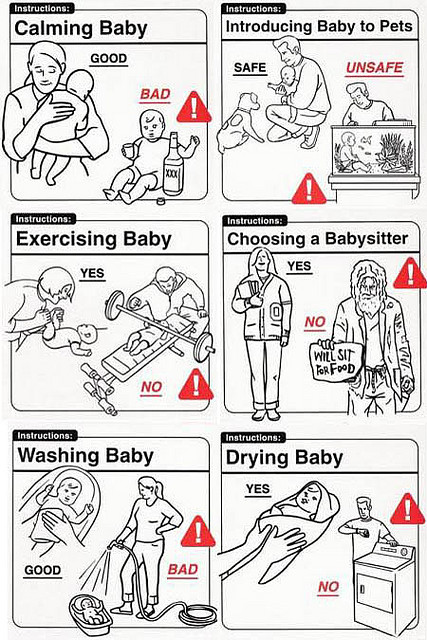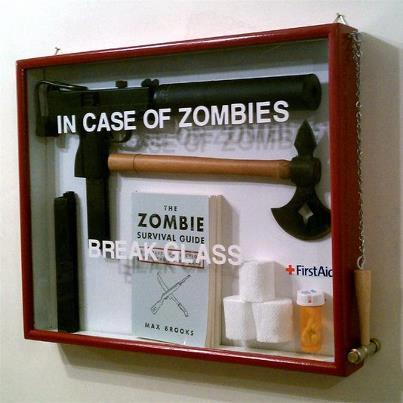Do parents actually matter?
bsp; Genetically, your parents affect you enormously. But what about the way they raised you? Research says it doesn't make a difference. Via Malcolm Gladwell's excellent book The Tipping Point: How Little Things Can Make a Big Difference: Parents are powerfully invested in the idea that they can shape their children's personalities and behavior. But, as Judith Harris brilliantly argued in her 1998 book The Nurture Assumption, the evidence for this belief is sorely lacking...does the specific social environment that we create…
2 minutes
What type of goals move people’s hearts *and* minds?
bsp; The mind does well with goals that are "SMART": Specific, Measurable, Actionable, Relevant and Timely. "The specificity of SMART goals is a great cure for the worst sins of goal setting -- ambiguity and irrelevance..." Via Switch: How to Change Things When Change Is Hard: ...SMART goals -- goals that are Specific, Measurable, Actionable, Relevant and Timely -- have become the norm. A typical SMART goal might be "My marketing campaign will generate 4,500 qualified sales leads for the…
3 minutes
What’s the secret to communicating memorably?
bsp; Tell stories, not stats. Stanford students each had to give a one minute speech, and then their talk was evaluated by the group. Not surprisingly, the presenters who were the most polished got rated most highly. But then the researchers got clever: they distracted the students for a few minutes and asked them to recount specific points they remembered from each of the talks. Did the same speakers still come out on top? No. Polish wasn't memorable. It was…
2 minutes
What technique does the military use to make sure plans work on the battlefield?
bsp; It's a concept called "Commander's Intent": CI is a crisp, plain-talk statement that appears at the top of every order, specifying the plan’s goal, the desired end-state of an operation. If the unpredictable occurs rendering plans ineffective, the CI still allows everyone to stay focused on the end goal. Via Made to Stick: Why Some Ideas Survive and Others Die: “The trite expression we always use is No plan survives contact with the enemy,” says Colonel Tom Kolditz, the head of…
2 minutes
What 6 things make an idea “sticky”?
bsp; In their excellent book, Made to Stick: Why Some Ideas Survive and Others Die, Chip and Dan Heath lay out 6 principles that are universally found in ideas that survive and resonate with people: 1) Simplicity: "Proverbs are the ideal. We must create ideas that are both simple and profound. The Golden Rule is the ultimate model of simplicity: a one-sentence statement so profound that an individual could spend a lifetime learning to follow it." 2) Unexpectedness: "For our idea…
2 minutes
What are the two secrets to training like an expert?
bsp; It's no different than in sports: you need both drills and scrimmages. Drills emphasize learning perfect technique. Scrimmages give you a taste of the noise inherent in a real event. Via Practice Perfect: 42 Rules for Getting Better at Getting Better: Drills strive to maximize the amount of mental energy focused on a skill. They increase density, the number of productive iterations of a skill per minute of practice... A scrimmage, by contrast, is designed not to distort the game…
2 minutes
How much does it *really* cost to send a text message?
bsp; At most, 1/1000th of a penny. Via Priceless: The Myth of Fair Value (and How to Take Advantage of It): For cell phone users paying a la carte, the retail price of transmitted data is around $1 a megabyte. At that rate, the price of a 10-character message ought to be about 1/1,000 of a cent. Rounded to the nearest cent: free. Even the 1/1,000-cent figure arguably overstates the true cost of a text. Unlike e-mail, Internet, and voice data,…
1 min read
Is more embarrassing, disappointing, soul-crushing failure exactly what you need?
bsp; In Eric Ries’ acclaimed bestseller The Lean Startup he makes it clear that little bets, or “experiments”, are critical to moving a business forward in a safe fashion: …if you cannot fail, you cannot learn. This isn't just true for companies -- it's true for you. Getting it wrong helps you get it right. Making mistakes is vital to improvement. Via Where Good Ideas Come From: The Natural History of Innovation: “...Jevons is making a more subtle case for the role of error…
5 minutes








